Our guest on this Centre Stage episode is independent MP Jeremy Corbyn. Corbyn has long fought for economic justice, peace, and a British foreign policy that seeks to correct its imperial legacy.
Jeremy Corbyn on Gaza and Britain’s Imperial Legacy


Our guest on this Centre Stage episode is independent MP Jeremy Corbyn. Corbyn has long fought for economic justice, peace, and a British foreign policy that seeks to correct its imperial legacy.
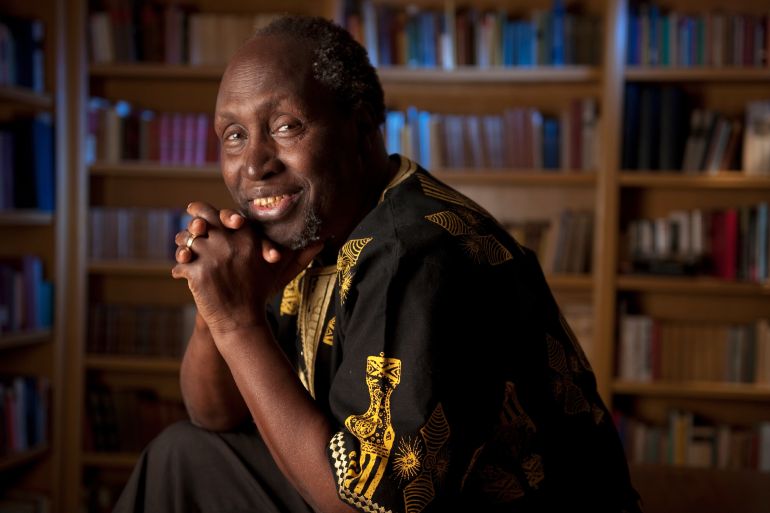
Ngugi wa Thiong’o, a well-known writer from Kenya, passed away at the age of 87, his family has been informed.
Wanjiku Wa Ngugi, his daughter Wanjiku Wa Ngugi wrote on Facebook on Wednesday, “We are sad to announce the passing of our dad, Ngugi wa Thiong’o.
She said, “He fought a good fight and lived a full life.”
Ngugi’s death was reportedly the result of his kidney dialysis, but it is not yet known what caused his death.
Ngugi, who was born in Kenya in 1938, will be remembered as one of postcolonial writers from Africa. The brutal Mau Mau war, which swept British-ruled Kenya in the 1950s, was one of Ngugi’s most notable events in his early life.
Ngugi’s writings also criticised Kenya’s postcolonial society and the British colonial era. His other research included the intersection of language, culture, history, and identity.
In the 1970s, Ngugi made a controversial choice to switch from writing in English to Swahili and Kikuyu, which he did at the time.
We all believed that he was both a braver and a madman at the same time, according to Kenyan journalist David Maillu.
“We enlisted the help of third parties to purchase the books.”
While residing abroad, he published one of his most well-known works, “Decolonising the Mind.” According to the author, it is “impossible to liberate oneself while speaking the language of oppressors,” according to AFP.
Ngugi was a prisoner of conscience in addition to holding the title of well-known author. He was imprisoned in Kenya in 1977 for staging a play that he thought was offensive to contemporary society.
He once described the new elite class in the country as “the death of dreams, the death of beauty,” or “the death of hopes.”
Following a ban on theatre productions and performances in his home country, Ngugi fled to self-imposed exile in the UK in 1982. He later relocated to the US, where he became an adjunct professor of comparative literature at the University of California, Irvine. Additionally, he continued to write a wide range of essays, memoirs, and books about Kenya.
Ngugi’s life and work quickly gained popularity online after learning of his passing.
On X, Kenya’s opposition leader Martha Karua wrote, “My condolences to the family and friends of Professor Ngugi wa Thiong’o, a renowned literary giant and scholar, a son of the soil and great patriot whose footprints are indelible.”
“Thank you Mwalimu [teacher] for your freedom writing,” read the letter from Amnesty International’s Kenya branch on X. He transitions from being mortal to being immortal, having already established his place in Kenyan history.
The author was hailed as a national icon by former student and author Margaretta wa Gacheru, a sociologe.
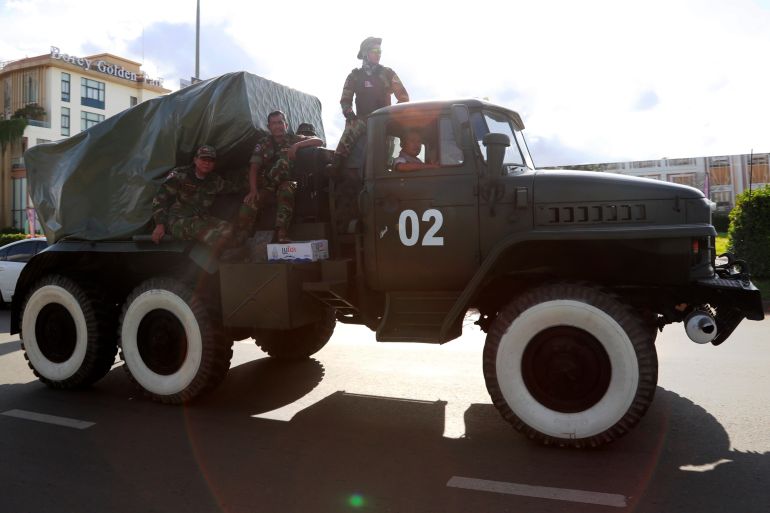
Prime Minister Hun Manet reassured the nation that he did not want a conflict between Cambodian and Thai forces in a written statement on Thursday that people should not “panic over unverified material being circulated.”
“I hope that the upcoming meeting between the Cambodian and Thai army commanders will have beneficial outcomes in order to maintain stability and effective military communication between the two countries, as we have done in the past,” said Hun Manet, who is currently visiting Tokyo.
He continued, “Even though I am in Japan, my full responsibilities as prime minister are still in the command system and hierarchy for major military operations, such as troop movements.”
In a tense border region between Thailand’s Preah Vihear province and Cambodia’s Ubon Ratchathani province, the country’s Ministry of National Defense announced on Wednesday that one of its soldiers was killed in a brief firefight with Thai troops.
The ministry claimed that Thai soldiers opened fire on a Cambodian military post that had been in the conflict’s border zone first.
Cambodian forces in the area had opened fire first, according to Thailand’s minister of defense Phumtham Wechayachai, adding that they had previously dug a trench there to bolster Cambodia’s claim over the disputed territory, according to local media reports.
“To defend our country and defend Thailand’s sovereignty, the return fire was advised,” I’ve been informed. I’ve advised caution. Both sides continue to face off, the minister said, according to Thailand’s The Nation newspaper, despite the ceasefire.
Additionally, The Nation reported that Hun Manet, the country’s prime minister, and Paetongtarn Shinawatra, her counterpart, were negotiating to lower the stakes.
The Thai prime minister’s statement read, “We don’t want this to escalate.”
Along their shared border, Cambodia and Thailand have a long history of fighting, including armed clashes that broke out in 2008 close to Cambodia’s Preah Vihear Temple, which was designated a UNESCO World Heritage Site that year. In 2011, fighting also broke out along the border.
According to the Associated Press news agency, Cambodian troops and their families entered a historic border temple in February, where they sang the country’s national anthem, leading to a brief dispute with Thai troops.
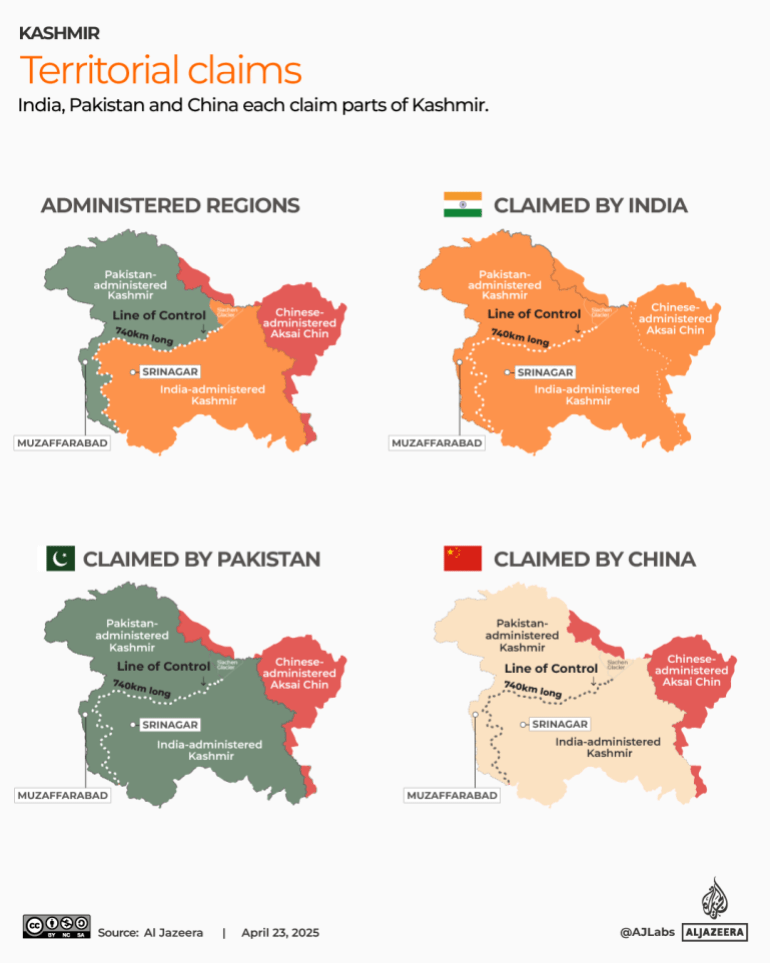
Pakistan’s Shehbaz Sharif, the country’s prime minister, visited Azerbaijan in February and Turkiye only one month ago in April.
Yet, this week, he was back in both countries, as part of a five-day, four-nation diplomatic blitzkrieg also including stops in Iran and Tajikistan, where Sharif will hold talks on Thursday and Friday. Additionally, Sharif is being accompanied by deputy prime minister Ishaq Dar and Army Chief Asim Munir, who was recently promoted to Pakistan’s only second-ever field marshal.
Although Sharif’s previous visits may have been well-known, the context has drastically changed.
More than two weeks after a four-day standoff between Pakistan and India – during which they exchanged missile and drone strikes – diplomacy has become the new battlefront between the South Asian neighbours.
India has organized a diplomatic trip to more than 30 nations, accusing Pakistan of supporting “terrorist organizations” responsible for the attacks in India and Kashmir.
We want to urge Pakistan to hold those responsible for transnational terrorism accountable, as they have done for 40 years. Their actions need to be called out”, said Randhir Jaiswal, spokesperson for India’s Ministry of External Affairs, last week.
In the worst civilian casualty attack in years, gunmen killed 26 people, the majority of them tourists, in Pahalgam, a hill resort in Indian-administered Kashmir. India attributed the killings to The Resistance Front (TRF), which it claims is affiliated with Lashkar-e-Taiba (LeT), a Pakistan-based organization that the UN has labeled a “terrorist” organization. New Delhi accused Islamabad of complicity in the attacks.
Pakistan disputed the allegations, calling for an “unbiased, credible, and transparent” investigation.
Then, on May 7, India launched a number of missile launches in parts of Pakistan and Pakistan-administered Kashmir in an effort to attack what it called “terrorist infrastructure.” Islamabad insisted that the missiles struck civilians, mosques and schools. In the Indian missile attacks, at least 11 security personnel were killed, including more than 50 others.
As they were on the verge of a full-fledged war before agreeing to a ceasefire that the US claims it brokered, both sides fired missiles at each other’s military bases on May 10.
Now, Pakistan, say officials and analysts, is looking to flip India’s narrative before the world — projecting itself as an advocate of peace and stability in South Asia, and New Delhi as the aggressor looking to stoke tensions.
If India responds “in all sincerity,” Sharif said on Wednesday that he would talk with her about “all matters.”
Speaking at a trilateral summit in Lachin, Azerbaijan, Sharif said trade could resume if India cooperated on all issues, including “counterterrorism”.
According to the resolutions of the UN and the Security Council, and as per the aspirations of the people of Kashmir, “I have said in all humility that we want peace in the region, and that requires discussions on the table on issues that urgently need urgent attention and amicable resolution,” he said.
Since their independence in 1947, the two nuclear-armed countries have engaged in conflict in Kashmir, a picturesque valley in the northeast of the continent.
A 1948 UN resolution called for a plebiscite to determine Kashmir’s future, but eight decades later, it has yet to take place.
Kashmir is administered by India and Pakistan, and China controls two remote areas. Pakistan claims the majority of the territory, but India does not claim the areas China’s ally holds.
Officials and experts believe that Pakistan’s diplomatic outreach is also being driven by other factors.
Members of India’s diplomatic delegations are currently making their way around the world, representing members of various political parties, including the ruling Bharatiya Janata Party (BJP) and the opposition Indian National Congress (INC), which both project a unified stance.
In contrast, Pakistan’s current mission is led by top state officials, including Sharif and army chief Munir, widely considered the most powerful figure in the country.
![The Pakistani delegation with prime minister Shehbaz Sharif and army chief Asim Munir also made a stop in Iran in their four-country tour. [Handout/Pakistan Prime Minister's Office]](https://i0.wp.com/www.aljazeera.com/wp-content/uploads/2025/05/c4bc2843-fa4c-4437-b90f-387be1d39668-1748471595.jpg?w=696&ssl=1)
The trip also reflects strategic alignment, say analysts. Turkey is a significant defense partner, having helped Pakistan with the recent conflict by using drones.
The cooperation between Pakistan and Turkey for defense is “particularly strong,” according to Christopher Clary, an assistant professor of political science at the University at Albany.
“Evidence suggests several Turkish-origin systems were used in this recent clash, with varying levels of effectiveness, so there is much to talk about between the two”, he told Al Jazeera.
A Pakistani delegation will travel to the US, UK, and EU headquarters in Brussels next month under the direction of former US foreign affairs and defense minister Khurram Dastgir Khan.
He claimed that Sharif, Munir, and Dar’s current trip is intended to demonstrate Pakistan’s ability to fight a larger adversary in a contemporary world. “There is immense interest in how Pakistan fought the recent war”, Khan said.
“There are nations who are very interested in learning the details,” he continued, noting what Pakistanis and Indians had.
“This opens up Pakistan’s defense forces’ strategic options for providing training to others. We are battle-tested. This increases our reputation, both locally and globally.
Pakistan relyed heavily on Chinese weapons, including the air defense systems it used to defend itself from Indian missiles and fighter jets it used to attack India.
Although both nations won the conflict after it ended, debates have raged on social media and in public forums.
India has not confirmed or refuted Pakistan’s claims that it downed six Indian jets, but Indian missiles have also penetrated deep into Pakistani territory, exposing weaknesses in its air defenses.
India has also suspended the six-decade-old Indus Waters Treaty (IWT), a critical water-sharing agreement that is vital to Pakistan.
Narendra Modi, the Indian prime minister, recently urged Pakistanis to reject “terrorism.” In a speech in Gujarat state, Modi remarked, “Live a life of peace, eat your bread or choose my bullet.”
He also criticised the IWT as “badly negotiated”, claiming it disadvantaged India.

Muhammad Shoaib, an academic and security analyst at Quaid-i-Azam University, said Modi’s remarks reflected “ultra-nationalism” and were targeted at a domestic audience.
“The Indian diplomatic teams won’t likely concentrate on what Pakistan says,” he added. They will only strengthen their case by blaming Pakistan for terrorism. Meanwhile, the Pakistani delegation will likely use Modi’s statements and international law regarding the IWT to bolster their arguments”, he told Al Jazeera.
Khan, a senior member of the ruling party Pakistan Muslim League-Nawaz (PMLN), said the upcoming diplomatic mission will focus on issues like India’s decision to suspend the IWT.
Pakistan’s main argument is that while Indian aggression poses three major challenges, “we want to maintain lasting peace in South Asia.”
The first, according to Khan, is “Indian-sponsored terrorism” in Pakistan, in which, he claimed, more than 20 people have been killed over the past four years. The US and Canada have accused India of carrying out international assassinations. Pakistan also charged India with killing people on its soil in January 2024. India denies involvement. Another accusation that India rejects is that Pakistan also accuses India of supporting separatist groups in its province of Balochistan.
Khan remarked, “India’s completely irresponsible suspension of the IWT is the second point.”
“Pakistan has rightly said that any step by India to stop our water will be treated as an act of war. I believe that if India can start diverting waters in the next six to ten years and makes an effort to do so, it will start a war,” Khan warned.
Khan cited Pakistan’s concern over India’s “status as a responsible nuclear power” as the third factor.
In the past, New Delhi has frequently cited the nuclear proliferation facilitated by Abdul Qadeer Khan, the father of Pakistan’s nuclear programme, as evidence that Islamabad cannot be trusted with the safe management of its nuclear weapons.
However, Amit Shah, India’s internal security minister, has confirmed that the country used its own BrahMos missile against Pakistan during the most recent military escalation. He is widely regarded as the second-powerful leader behind Modi.
A supersonic cruise missile with a range of 300 to 500 kilometers and three times the speed of sound is the BrahMos, which was developed with Russia. It can carry both conventional and nuclear warheads and be launched from land, air, or sea.
Khan, who served as defense minister from 2017 to 2018, warned of “unfathomable consequences” if someone used these weapons.
You can’t tell what payload a missile carries until it hits the target once it is in the air. This is very, very irresponsible”, he said. When India mistakenly launched a missile into our territory a few years ago, it has already shown carelessness.
Khan was referring to a “accident” that occurred in March 2022 when India “accidentally” fired a BrahMos into Pakistani territory in Mian Channu, a densely populated city located about 500 kilometers south of Islamabad.
India at the time acknowledged that accidental launch was due to a “technical malfunction” and later sacked three air force officials.

Although the two nations were at odds with one another during the conflict, the ceasefire that was declared on May 10 has been up, and troops have since gradually returned to their normal positions during peacetime.
Shoaib, a research fellow at George Mason University in the US, expressed cautious optimism.
“Initiating hostilities is risky. No party wants to appear careless. He claimed that a significant incident would be required for that to fail.
Tughral Yamin, a former military officer and researcher in Islamabad, noted that while diplomacy offers no guarantees, the ceasefire could last.
Pakistan is no cakewalk, according to India. He told Al Jazeera, “It has both conventional and nuclear deterrence.” “Both sides will remain alert, and Pakistan must address weaknesses exposed in the standoff”.
Clary added that while the India-Pakistani relationship is still fragile, historical evidence suggests that more calmer times frequently follow intense conflicts.
He said, “It is reasonable for both countries and international observers to hope for the best but plan for the worst over the upcoming months.”
But Khan, the former minister, questioned Modi’s comments, after the military crisis, where the Indian PM said that any attack on the country’s soil would now be seen as worthy of a military response, and that New Delhi would effectively cease to draw any distinction between Pakistan’s military and non-state armed groups.
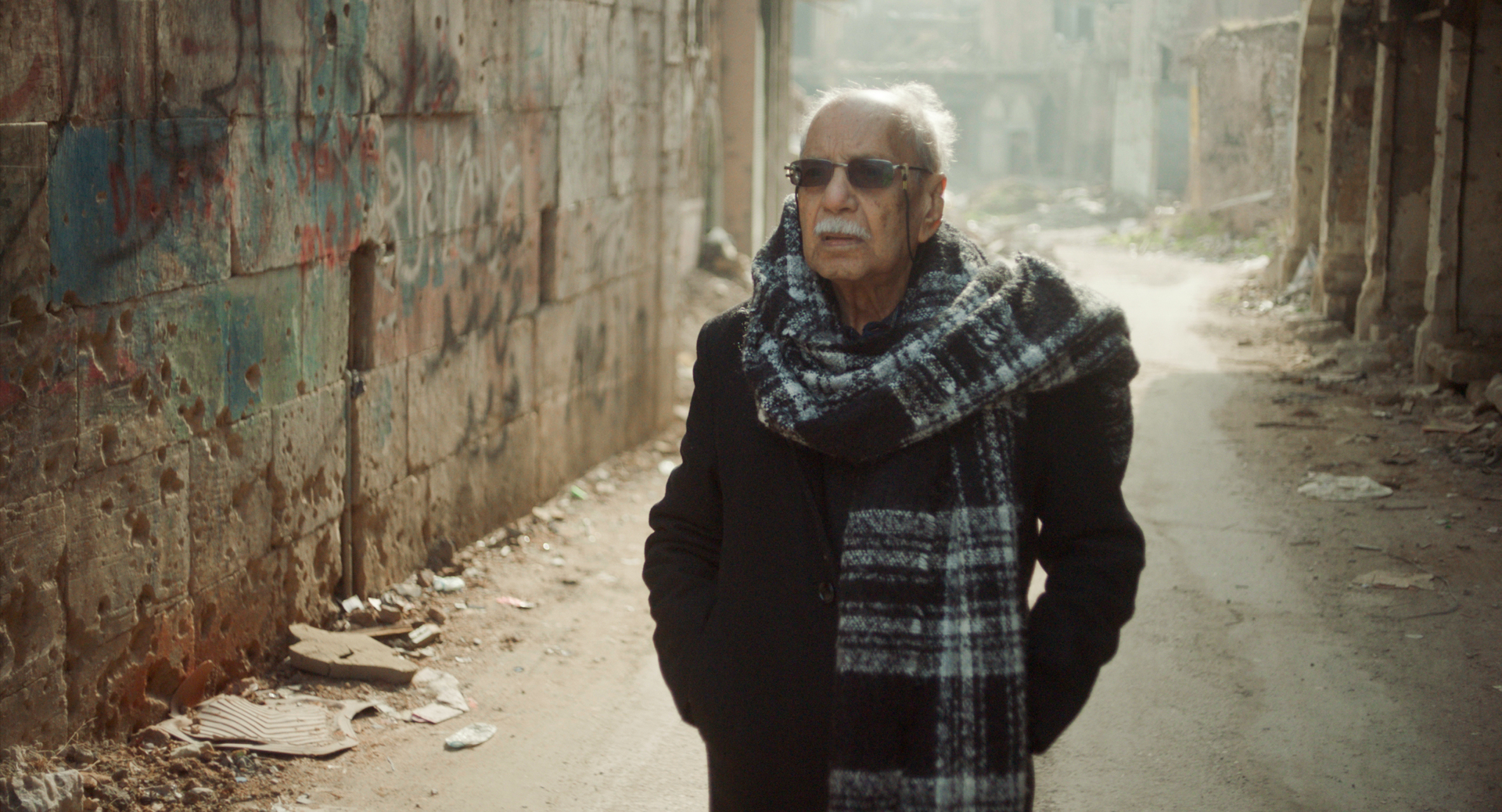
Latif al-Ani, a well-known photographer, discovers the people and locations he photographed before the wars in various locations throughout Iraq.
Latif al-Ani, a well-known photographer who was born in Baghdad in 1932, is credited with founding Iraqi photography. His portfolio creates a unique visual archive of Iraq during its height between the 1950s and the 1970s as the official photographer for presidents and the Iraqi Petroleum Company.
His images show how diverse and varied a modern, cosmopolitan country is in harmony and with abundance. Al-Ani, however, stopped taking photos when Saddam Hussein gained control. Al-Ani travels across Iraq with his photos in search of the remains of his stunning nation after decades of conflict.
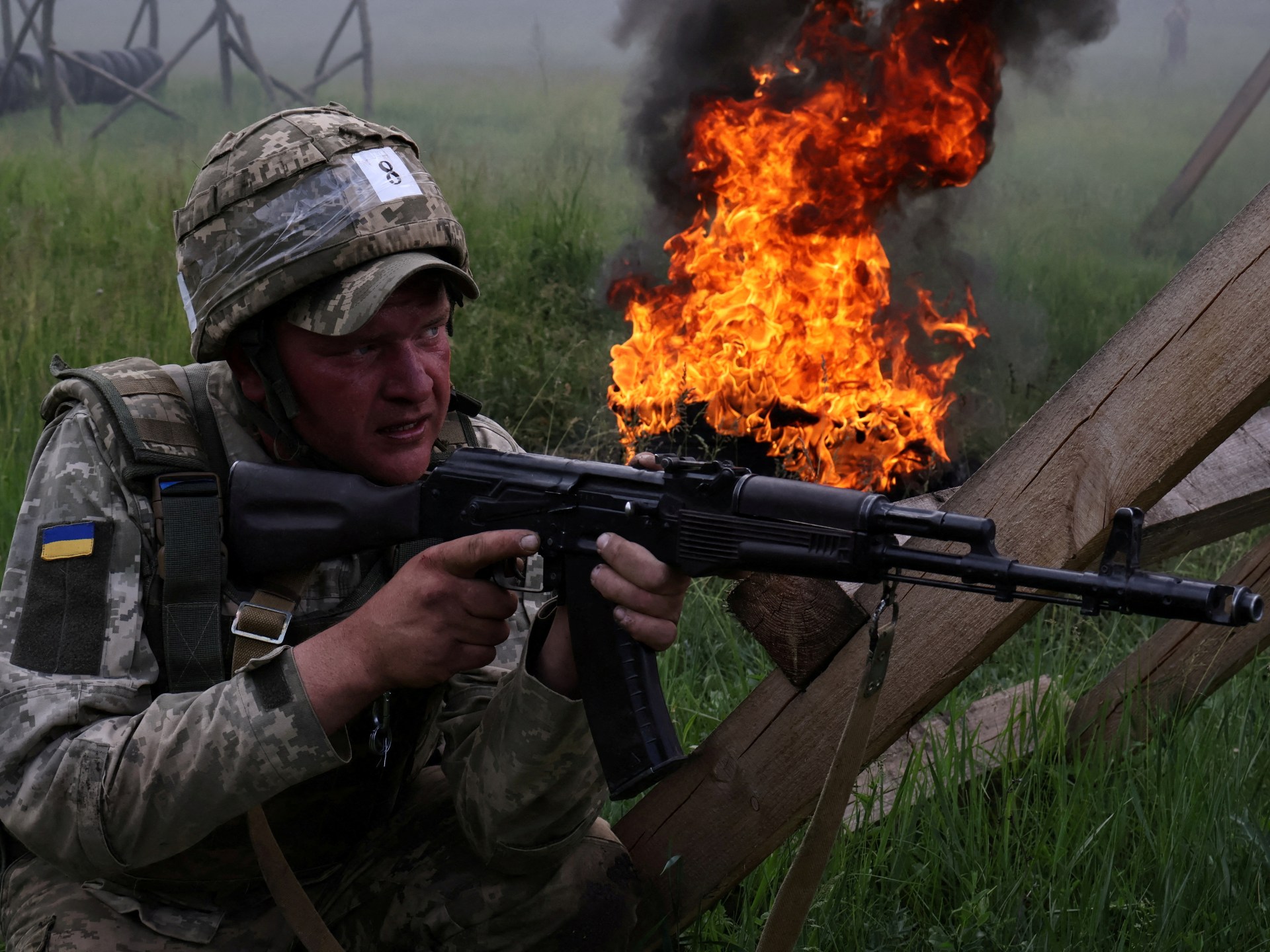
On Thursday, May 29, 2018, this is how things are going: